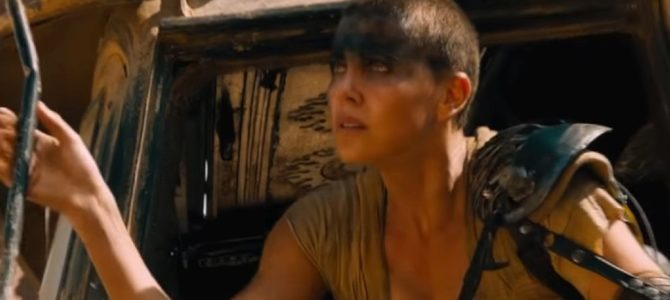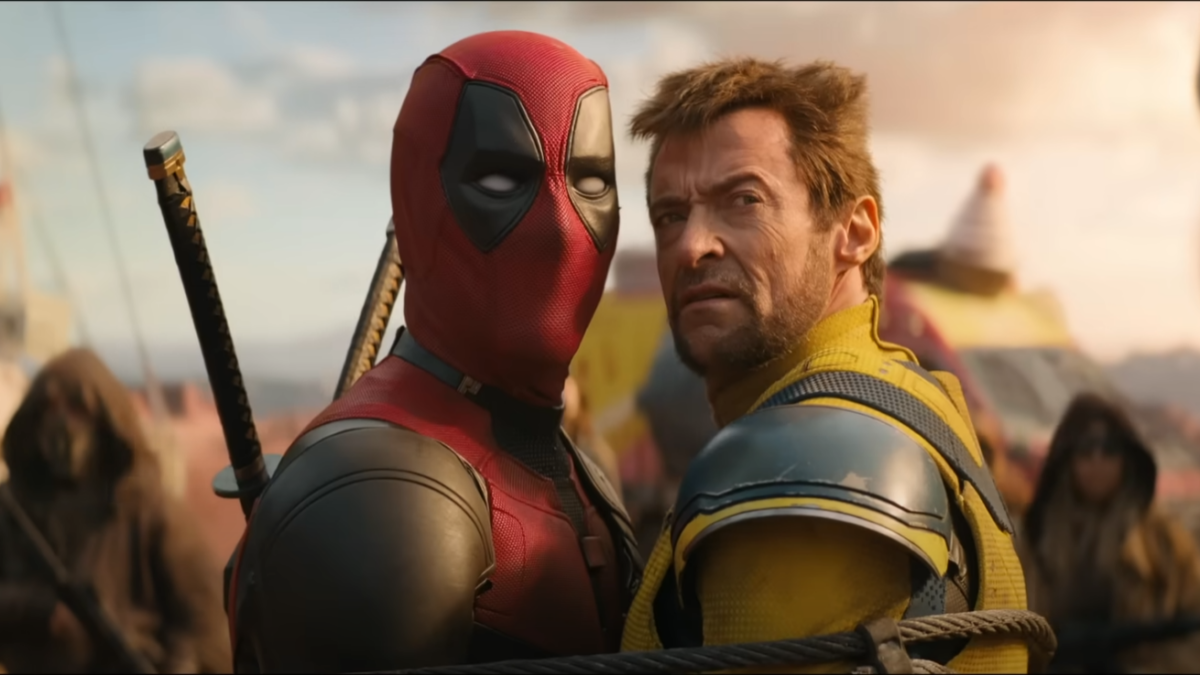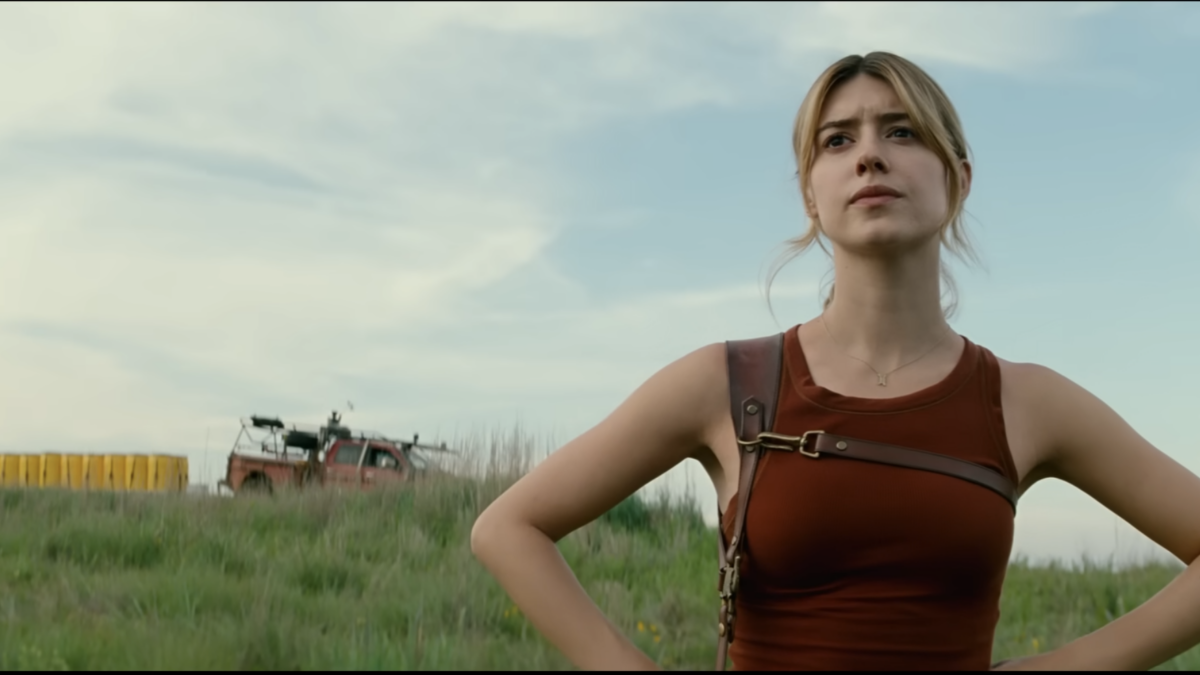
I loved William Golding’s novel “Lord of the Flies” when I first read it back in high school. It’s one of my first clear memories of an engagement with serious literature. So when I heard Hollywood plans an all-female remake of the book, my first reaction was: Why? After I was done laughing, I spent a few minutes trying to find a charitable explanation of what the directors must think they’re playing at. But alas, there is no charitable explanation. The concept is just about as dumb as it seems.
In its broad contours, Golding’s novel is about a bunch of pre-adolescent boys who are being evacuated by plane in a wartime situation but crash-land on a desert island. The boys then try to build something of a society while awaiting rescue. But their society degenerates into savagery, the state in which the boys are found when they finally are rescued at the end of the story. This novel would not have been the same if it had been a bunch of girls who were on the island, and there is no sense in what the remake is trying to accomplish.
These People Make You Wonder
One can only assume that the concept of the new “Lord of the Flies” movie is in line with the recent trend of all-female remakes of other films, including “Ghostbusters” and “Ocean’s Eleven.” The same has also happened with the television show “Doctor Who.” The idea is simple: given that men have been overrepresented in media portrayals, go back to media products featuring men and switch all the characters into women. This is politically correct thinking. From the aesthetic standpoint, a whole lot could go wrong.
In the case of “Lord of the Flies,” the all-male characters end up descending into pure barbarism and tearing each other apart. Are the directors of the remake suggesting that girls can be exactly as awful as boys? Now, I wouldn’t dare to disagree with that proposition. But I do wonder whether this is what the directors had in mind when creating their concept.
Moreover: if the girls in the new movie will be exactly as bad as the boys in the original novel, then nothing new is really being said, and there is no reason to make the thing. On the other hand, if the girls will act in a very different way, the story is no longer “Lord of the Flies.” It’s just a story of a bunch of girls stuck on an island. Either way, the “remake” becomes a cheap gimmick.
I can’t help but think that this concept was produced by the same kind of geniuses who were behind this gay pride ad from Royal Dutch Airlines. The ad features seatbelts and suggests “It doesn’t matter who you click with” (buckles are female, and clips are male)—which inadvertently confirms that only one of the seatbelt configurations does in fact click. This confirms my suspicion that excessive exposure to ideology tends to make people a little autistic: it dulls the mind’s sense for irony, nuance, context. Something similar is behind the belief that an all-female remake of “Lord of the Flies” is a good idea.
‘Lord of the Flies’ Is Sex-Specific
There are four important characters in Golding’s novel: Ralph, Piggy, Jack, and Simon. Ralph is something of a calm and benevolent leader; Piggy is a bully’s favorite target; Jack is a savage hunter and would-be dictator; and Simon is a frail epileptic prone to having visions. Much of the theme of the novel emerges from the dialectics that play out among these four boys. It is very difficult to believe that the fact of these characters being boys is not relevant to how the story pans out.
The relationship between Ralph and Jack, for example, consists of a pure and ruthless attempt to maintain or claim power. It reflects some of the darker effects that testosterone has on the human soul. Likewise, Simon is a kind of prophetic figure, and the reader gets the sense that he had to be male, for reasons similar to why Jesus had to be male. The more general point that can be made here is that the theme of “Lord of the Flies” is really inseparable from an investigation of the expressions and pitfalls of masculinity. The belief that this is not relevant at all to the meaning of the novel is nothing but a reflection of the absurd progressive notion that men and women are exactly the same and interchangeable in every way.
At the end of novel, a naval captain finally discovers the boys and is shocked at how savage they have become. There is a terrible irony present: the captain is participating in a nuclear war. The captain thus saves the boys, but the fundamental question that lingers is, who will save the captain? Golding’s exploration of the human darkness as it manifests among the boys on the island opens onto a broader indictment of civilization itself.
Civilization at Its Genesis Is Male
People who attack human civilization as patriarchal aren’t wrong—but this doesn’t mean what they think it means. Some suggest civilization as such has been an inherently masculine project, for reasons intrinsic to male nature. This is how Camille Paglia (a woman) has described men, in her book “Sexual Personae”:
Male sexuality is inherently manic-depressive. Estrogen tranquilizes, androgen agitates. Men are in a constant state of sexual anxiety, living on the pins and needles of their hormones. In sex as in life they are driven beyond—beyond the self, beyond the body. . . . But to be beyond is to be exiled from the center of life. Men know they are sexual exiles. They wander the earth seeking satisfaction, craving and despising, never content. There is nothing in that anguished motion for women to envy.
A little devastating, but I can’t argue. This could be called the tragic vision of masculinity. Paglia implies it’s the metaphysical anxiety of men that produced the grand sublimations of energy needed for civilization to emerge in the first place. Men are the ones who built civilization, for the benefit of both men and women. Another implication is that the power of creativity needed to develop civilization is inseparable from the destructive impulse that the creativity is meant to contain—meaning, the descent into savagery is always just a few steps away.
This is not to suggest, of course, that women are angels. But it’s also probably safe to say that no woman would have been enough of an idiot to even think about inventing the nuclear missile. If women are also awful, they’re surely awful in a different way. In his novel “The Elementary Particles,” Michel Houllebecq has one of his characters muse that “a world of women would be immeasurably superior, tracing a slower but unwavering progression, with no U-turns and no chaotic insecurity, toward a general happiness.” This would also mean that on an island full of girls, “Lord of the Flies” would not happen in the same way.
A Plea for Aesthetic Value
It shouldn’t be necessary to say this, but given the times we live in, here goes: this article in no way implies that anything is wrong with a movie that features an all-female cast. That can be wonderful. I love strong female characters in movies. (I think Clementine from “Eternal Sunshine of the Spotless Mind” is one of the more compelling figures in film.) The only point here is that there is no aesthetic reason to produce an all-female remake of “Lord of the Flies.” This is nothing but a cheap political trick.
This is the broader problem with the progressive vision of the world: it tends to diminish and narrow the human experience by insisting on subordinating all domains of life to politics. A work of art is not good because it aligns with the ideological orthodoxy of the day and age; it is good because it reveals something eternal and true about being human.
The original novel by Golding clearly achieves this objective. The saddest thing about directors wanting to make their new version of “Lord of the Flies,” then, is that this very concept reveals an astonishing incomprehension of what the novel itself was actually about, and why it continues to matter.









